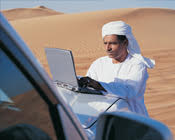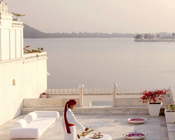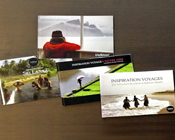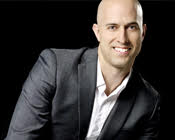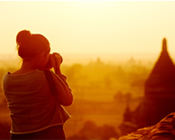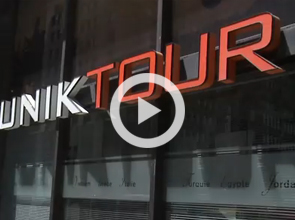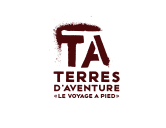Australia
Population & Culture
Australian culture is founded on stories of battlers, bushrangers and brave soldiers. Of sporting heroes, working heroes and plucky migrants. It's all about a fair go, the great outdoors and a healthy helping of irony. Today Australia also defines itself by its Aboriginal heritage, vibrant mix of cultures, innovative ideas and a thriving arts scene.
Aboriginal culture: a rich and timeless tradition
The Dreamtime is the sacred ‘time before time' of the world's creation. According to Aboriginal belief, totemic spirit ancestors emerged from the earth and descended from the sky to awaken a dark and silent world. They created the sun, moon and stars, forged mountains, rivers, trees and waterholes and changed into human and animal forms. Spirit ancestors connect this ancient past with the present and future through every aspect of Aboriginal culture. Rock art, craft and bark painting reveal Dreamtime stories, mark territory and record history, while songs tell of Dreamtime journeys, verbally mapping water sources and other essential landmarks. Their special lyrics have been passed down virtually unchanged for at least 50,000 years, and are often accompanied by clapsticks or the deep throb of the didgeridoo. Similarly, traditional dances reveal creation myths, enact the deeds of Dreamtime heroes and even recent historical events.
Colonial myths: battlers, bushrangers and brave soldiers
Australians believe in mateship and a ‘fair go' and have a strong affection for the underdog or ‘battler'. These values stem from convicts and early colonialists who struggled against a harsh and unfamiliar land and often unjust authority. Australia's most famous bushranger Ned Kelly protested against the poverty and injustice of a British class system shipped here along with the convicts. This flawed hero's fight for 'justice and liberty' and 'innocent people' has been embraced as part of the national culture and inspired countless books and movies. On the goldfields of the mid-1850s, diggers were portrayed in stories and songs as romantic heroes, larrikins and villains who embraced democracy. The bloody 1854 Eureka Stockade, where Victorian miners rose up against an authoritarian licensing system, came to symbolise a triumph of social equality. Later, during World War I, the courageous ANZAC soldiers who served in Gallipoli gave new meaning to the term ‘tough Aussie'.
Australian English: speaking ‘Strine'
Australians have a unique colloquial language, coined ‘strine' by linguist Alastair Morrison (imagine saying Australian with your teeth gritted to keep out the flies) in 1966. This combines many long lost cockney and Irish sayings of the early convicts with words from Aboriginal languages. We often abbreviate words and then add an ‘o' or ‘ie' on the end as in ‘bring your cossie to the barbie this arvo'. We also like reverse nicknames, calling people with red hair ‘bluey', saying ‘snowy' to someone with dark hair, and tagging ‘lofty' to someone who is small in stature. We tend to flatten our vowels and end sentences with a slightly upward inflection.
Sporting heroes: the glory of green and gold
It's no secret that Australians are sports mad. With more than 120 national and thousands of local, regional and state sporting organisations, it's estimated that six-and-a-half million people in Australia are registered sport participants. Not bad from a population of just over 21 million! The number one watched sport in Australia is Australian Rules Football (AFL) with its high kicks and balletic leaps, while the brute force and tackling tactics of National Rugby League (NRL) reign supreme in New South Wales and Queensland. Australia's national Rugby Union team, the Wallabies play on the international circuit and in the Bledisloe Cup, part of a Tri Nations tournament with South Africa. Australia is a nation of swimmers and Olympic medals attest to our performance in the pool. All summer we watch the Australian cricket team in their whites and in January, we flick channels to see the tennis Australian Open. Held in Melbourne, this attracts more people to Australia than any other sporting event. Football is a growth sport, we draw world-class surfers for the Bells Beach Surf Classic and on Boxing Day crowds gather to watch the boats sail out of Sydney Harbour for the Sydney to Hobart Yacht Race. On the first Tuesday in November, the nation stops for the famous horse race, the Melbourne Cup while and in March rev heads converge in Melbourne for the Formula One Grand Prix. The list of sports we love goes on, and if in doubt about the rules just ask a passionate punter.
An outdoor lifestyle: beach and barbeques
With more than 80 per cent of Australians living within 50 kilometres of the coast, the beach has become an integral part of our famous laid-back lifestyle. From Saturday morning surf-club training for young ‘nippers' to a game of beach cricket after a barbeque, we love life on our sandy shores. We jostle for a spot on packed city beaches, relax at popular holiday spots and drive to secret, secluded beaches in coastal national parks. We go to the beach to enjoy the sun and surf or to sail, parasail, fish, snorkel, scuba dive and beach comb. It's where we socialise and play sport, relax and enjoy romance. It's also the site for celebration. On New Year's Eve, revellers dance in the sand and watch fireworks at Manly and Bondi beaches in Sydney and Glenelg in Adelaide. Many beaches host citizenship ceremonies on Australia Day and on Christmas Day up to 40,000 international visitors converge on Bondi Beach wearing Santa hats and swimming costumes. Australia's most famous beaches - Bondi and Manly in Sydney, St Kilda in Melbourne, Surfers Paradise on the Queensland Gold Coast, Cottesloe in Perth and Glenelg in Adelaide – attract locals as well as international tourists.
Multiculturalism: diverse food, festivals and faith
Since 1945 more than six million people from across the world have come to Australia to live. Today, more than 20 per cent of Australians are foreign born and more than 40 per cent are of mixed cultural origin. In our homes we speak 226 languages - after English, the most popular are Italian, Greek, Cantonese and Arabic. Our rich cultural diversity is reflected in our food, which embraces most of the world's cuisines and artfully fuses quite a few of them. You'll find European flavours, the tantalising spices of Asia, Africa and the Middle East and bush tucker from our backyard on offer everywhere from street stalls to five star restaurants. Tuck into Thai takeaway, dine out on perfect Italian pasta, do tapas in our city's Spanish strips and feast on dumplings in Chinatown. You can also embrace our melting pot of cultures in the many colourful festivals. See samba and capoeira at Bondi's Brazilian South American festival, dance behind the dragon parade during Chinese New Year or stroll through streets transformed into a lively piazza during the annual Italian celebrations. As a nation, we embrace a rainbow of religious belief and you'll find Catholic and Anglican churches, Hindu, Sikh and Buddhist temples, mosques and synagogues lining our streets.
Australian innovations: from the Hills Hoist to Penicillin
Australia's unique geography and relative isolation has made it a fertile ground for new ideas. In 1879, Australians developed a way for ice to be manufactured artificially, allowing us to export meat to Great Britain on refrigerated ships. In 1906, the surf lifesaving reel was designed so lifesavers could reach distressed swimmers with a rope attached to their vests. In 1929, Alfred Traeger built a pedal-powered radio as the communications for the Royal Flying Doctor Service.
Australians were also responsible for more everyday inventions such as notepads (1902), aspirin (1915), the pacemaker (1926), penicillin (1940) the Hills Hoist clothesline (1946), the plastic disposable syringe (1949), the wine cask (1965), the bionic ear (1978), dual-flush toilet flush (1980)anti-counterfeiting technology for banknotes (1992) and long-wearing contact lenses (1999). Long before European colonisation, the Aboriginal people were already leading the world. They invented the aerodynamic boomerang and a type of spear thrower called the woomera. They were also the first society to use ground edges on stone cutting tools and the first to use stone tools to grind seeds, everyday tools which were developed only much later by other societies.
Culture cravings: theatre, film, books and visual art
From theatre to literature, Australians have a quiet love affair with the arts. We flock to the movies and our attendance at galleries and performing arts is almost double that for all football codes. Our cities play host to a huge array of cutting-edge cultural festivals, and offer music, theatre and dance performances and art exhibitions every day of the week. See traditional Aboriginal dance performance by the Bangarra Dance Theatre, throw yourself into the WOMADelaide international music festival in Adelaide and soak up theatre, ballet, opera and painting in Brisbane's huge cultural centre on South Bank. In smaller towns you can catch performances by local musicians and see hand-made art and craft.

 1 (866) 722-0909
1 (866) 722-0909
 QUOTE REQUEST
QUOTE REQUEST 



